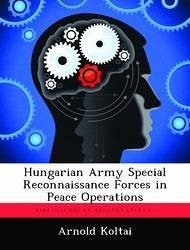Ever since the collapse of the world of the bipolar opposition between the former USSR led Warsaw Pact and NATO, political and military leaders have been facing a different security environment with overwhelming instability and uncertainty. In this environment peaceful states are endangered by erupting conflicts in different regions in the world. Eventually, leaders shifted their attention from global confrontation to regional conflicts in which they must be evermore politically and militarily involved to restore and keep peace. Hungary is currently modernizing its forces to become more compatible with NATO and enhance its defensive capabilities. NATO forces, including Hungary, are currently deployed in peace operations in the Balkans. Hungary has particular interest in the success of peacekeeping in the Balkans because it borders on the region and is directly affected by the instability of the area. The Balkans, given their nature and history, are likely to remain one of the primary areas into which NATO peacekeeping forces are deployed in the foreseeable future. Hungarian and multinational peacekeeping experiences, in the Balkans and elsewhere, show that the use of special reconnaissance forces (SRF) would increase interoperability of Hungarian forces with other NATO forces in peace operations. The Hungarian Ministry of Defense should build upon the existing Hungarian SRF structure and capacity to create an immediately deployable SRF capability, which would increase interoperability and give the political and military leadership another option Hungary could use in offering forces to NATO missions, thereby enhancing Hungary's participation in NATO in general, and interest in the Balkans specifically. The study concludes that Hungarian SRF could improve Hungarian interoperability with NATO forces in peace operations.
Hinweis: Dieser Artikel kann nur an eine deutsche Lieferadresse ausgeliefert werden.
Hinweis: Dieser Artikel kann nur an eine deutsche Lieferadresse ausgeliefert werden.








